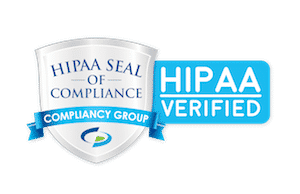
Safety on the roads doesn’t only depend on the condition of the vehicle you are driving or the weather conditions. Driving also requires exceptional visual skills. You need to be able to see objects in front of you and around you and respond quickly to them – for example watching and anticipating another vehicle changing lanes or pulling out of a side road in front of you, having enough peripheral vision and awareness to know when another vehicle is going to overtake you, or watching for pedestrians, bikes and other hazards. As such, it’s not surprising that most countries require drivers to meet certain visual standards in order to legally get behind the wheel.
Nevertheless, some people who have previously met the expected visual standard for driving still go on to experience issues with their sight later on. Many of these people suffer from distorted vision while driving. Here’s what you need to know about distorted vision while driving and how neurovisual medicine can help.
What is Distorted Vision and Why Does it Occur?
The American Academy of Ophthalmology defined distorted vision as a condition in which familiar objects look wavy or as though they are bent incorrectly. Unsurprisingly, this can be extremely dangerous when it comes to driving. When things don’t look exactly as they should, it can make it harder to correctly process the visual information and this can affect our ability to drive.
There can be a range of reasons why someone might start to experience distorted vision while driving including refractive eye errors, dry eye, low blood sugar levels, and even pregnancy. However, one of the most common is a condition called Binocular Vision Dysfunction – or BVD.
Binocular vision dysfunction is a very common problem, yet many people are unaware of it and therefore don’t realize that they are affected. It occurs when the eyes aren’t perfectly synchronized when working together, and since our brain won’t tolerate this misalignment, the eye muscles are forced to work exceptionally hard to create a single, clear image. In most cases, the visual misalignment is vertical, meaning that the image in one eye is slightly higher than the other.
The Effects of Distorted Vision While Driving
If you suffer from distorted vision while driving, you may also experience a range of effects that include, but aren’t limited to:
Dizziness or a detached, light-headed feeling
Difficulty determining how close other vehicles are
It may seem like other cars coming towards you are driving directly at you
Anxiety when trying to drive on a road with multiple lanes
Feeling like you are moving backward after you have stopped
Rounding bends make you feel disorientated
Problems determining the speed of other vehicles
Blurred vision
How Neurovisual Medicine Can Help With Distorted Vision While Driving
Neurovisual medicine is a branch of specific visual medicine that focuses on diagnosing and treating Binocular Vision Dysfunction so that symptoms are reduced or eliminated, and patients can enjoy a better quality of life. It is known as neurovisual medicine and it targets the neurological effects caused by problems with the way that the eyes work.
Patients must undergo a comprehensive evaluation before starting treatment, to ensure that neurovisual medicine will be the most effective solution. The tests performed as part of this evaluation will also enable specialists to fully understand the bespoke challenges of the patient’s visual misalignment. This is important as neurovisual treatment is planned specifically to meet the individual needs of each patient.
The treatment itself involves the use of small amounts of micro-prism which is incorporated into the lenses of your glasses. This prism counteracts visual misalignment, enabling the eyes to work together much more accurately. The process of determining how much prism is needed is progressive, and while you will almost certainly notice an improvement in your vision right away, it will be possible for your specialist team to ‘fine-tune’ the levels in order to achieve the greatest possible reduction in your BVD symptoms. This can improve your quality of life and make it easier and safer for you to drive.
If you are concerned about distorted vision while driving and would like professional advice, don’t hesitate to contact our expert neurovisual team at our Cave Creek, AZ office today.





































































































































































































































































